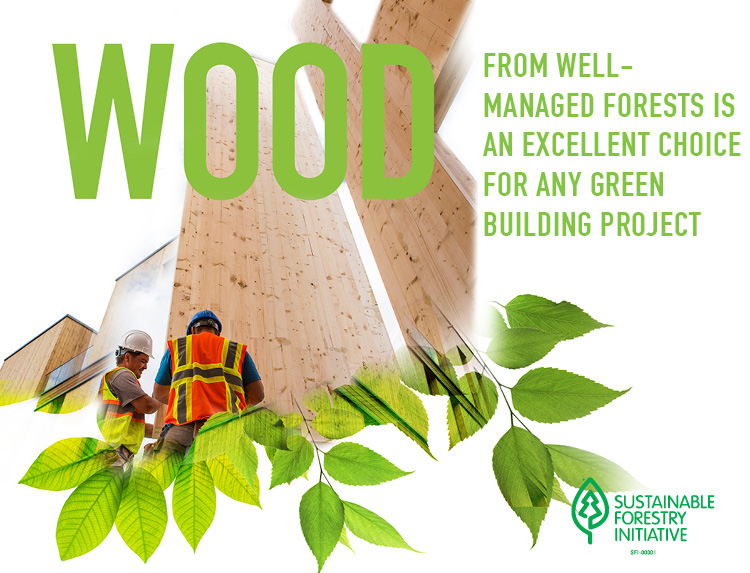One of the best ways to make buildings better for our environment is to use as much wood as possible in construction. However, many of wood’s positive attributes in construction depend, in part, on whether the forest resource is well managed. Forest certification programs like SFI provide assurances of sustainability. Many leading green building rating programs around the world, like Leadership in Energy and Environmental Design (LEED) and Green Globes, recognize forest products certified to SFI. That’s why SFI will be at the Greenbuild International Conference and Expo in Boston this week.

Since this spring, two cross-laminated timber (CLT) companies have certified to SFI — SmartLam, in the U.S., and Structurlam, in Canada. In addition, 92 hardwood manufacturers achieved SFI Chain-of-Custody certification as part of a group through the Wood Products Manufacturers Association.
This growing market for green building products is good news for everyone’s quality of life. Trees absorb carbon dioxide as they grow, sequestering and storing carbon while producing oxygen. This means building homes and other products from wood can help mitigate climate change. U.S. forests recover about 13% of our emissions each year so the use of wood products in buildings will ultimately lower the construction sector’s contribution to global climate change. Helping the green construction industry grow will also have the positive effect of bringing more builders and architects to bear on the fight against climate change.
If you are going to the Greenbuild International Conference and Expo, come by the SFI booth (1821 located in the wood pavilion) to learn more about SFI and how sourcing responsibly ensures that forests continue to make positive and measurable contributions to our quality of life.